While Cape Cod is thought of as a wealthy area, the high cost of living and seasonal economy mean that hunger is a problem for many families here. The 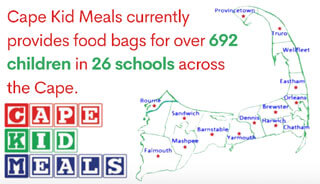 economic ripples of the pandemic have only exacerbated the issue, with many of the business closures and layoffs impacting those who were already struggling to make ends meet.
economic ripples of the pandemic have only exacerbated the issue, with many of the business closures and layoffs impacting those who were already struggling to make ends meet.
Across the Cape, 33% of kids qualify for free/reduced lunch at school, with over 40% qualifying in Barnstable, Dennis, Yarmouth, and Provincetown. These students get breakfast and lunch at school but can struggle to get enough to eat on weekends and school vacations. Cape Kid Meals aims to close that gap, providing elementary students a bag of shelf-stable and ready to eat foods to take home for the weekends.
Tammy Leone, the Executive Director of Cape Kid Meals, notes how important it is for growing kids to be well fed, “ When a hungry child is trying to learn they are often preoccupied with the feeling of being hungry and the anxiety of not knowing when they are going to eat. Many hungry children have headaches and stomach aches which also impacts their ability to concentrate in class.” Lots of research also shows how young children who lack proper nutrition can suffer negative impacts on their physical health and brain development.
From their founding in 2014 in Dennis, Cape Kid Meals has grown and now serves nearly seven hundred elementary school students in twenty-seven schools from Bourne to Provincetown. They pack non-perishable and mostly prepared foods in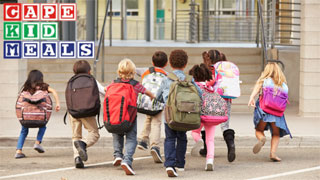 bags for kids participating in the program, making it easy for kids to enjoy the food no matter what their home kitchen situation may be.
bags for kids participating in the program, making it easy for kids to enjoy the food no matter what their home kitchen situation may be.
Before the pandemic volunteers would shop for food, with about half coming from the Greater Boston Food Bank and half from bulk retail stores, then pack up the meal bags and deliver them to the schools each week. The program is confidential, and the participating students are selected by the schools. Cape Kid Meals just knows the number of bags needed at each site where school staff tuck the meal bags into participants’ backpacks before they head home for the weekend.
When schools closed on March 13th, 2020, everything was thrown up in the air. Suddenly Cape Kid Meals needed to reinvent their whole distribution system. Tammy Leone recalls that it was about four days of round-the-clock brainstorming on how to get the food to kids who needed it more now than ever. Coordinating 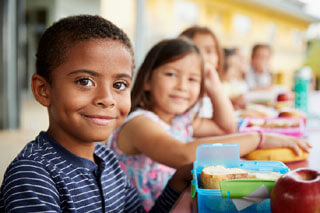 with already existing meal-pickup sites, Cape Kid Meals got the meal bags to places that the families could easily pick them up, and in some cases delivered the bags to homes. With a herculean effort the organization shifted their whole procedure and didn’t miss a week of meal bags!
with already existing meal-pickup sites, Cape Kid Meals got the meal bags to places that the families could easily pick them up, and in some cases delivered the bags to homes. With a herculean effort the organization shifted their whole procedure and didn’t miss a week of meal bags!
With social distancing measures in place, volunteers were no longer an option, and the organization worked with a bare bones crew to keep everyone safe. The program typically operates only during the school year, using the summer to regroup and gear up for the next fall. Many of the participating students are involved in programs and camps throughout the summer that provide meals. The pandemic changed this as well, with many programs cancelled or operating with drastically reduced capacity. Cape Kid Meals decided to continue to operate and distribute food bags through the summer, collaborating with other groups and the schools to make sure kids could still get the much-needed meal bags.
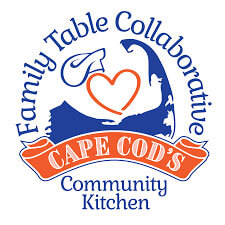 Cape Kid Meals is one of many organizations working on issues of hunger and food insecurity on Cape Cod. Tammy Leone notes, “We have been very fortunate to create partnerships with groups who provide family sized meals and meal boxes.” The organization has partnered with The Family Table Collaborative, Mass Military Foundation’s Farmers to Families program, and Greater Boston Food Bank to provide food to families across Cape Cod.
Cape Kid Meals is one of many organizations working on issues of hunger and food insecurity on Cape Cod. Tammy Leone notes, “We have been very fortunate to create partnerships with groups who provide family sized meals and meal boxes.” The organization has partnered with The Family Table Collaborative, Mass Military Foundation’s Farmers to Families program, and Greater Boston Food Bank to provide food to families across Cape Cod.
While Leone notes that the high cost of living and seasonal employment structure of life on the Cape are unlikely to change, she is heartened by the increased collaboration between various programs and groups. “Seeking out ways to provide food resources in a manner that is done thoughtfully, leveraging partnerships and working together to identify solutions will hopefully be a good start to combating food insecurity on the Cape.”
To help Cape Kid Meals consider volunteering, fundraising, or donating!

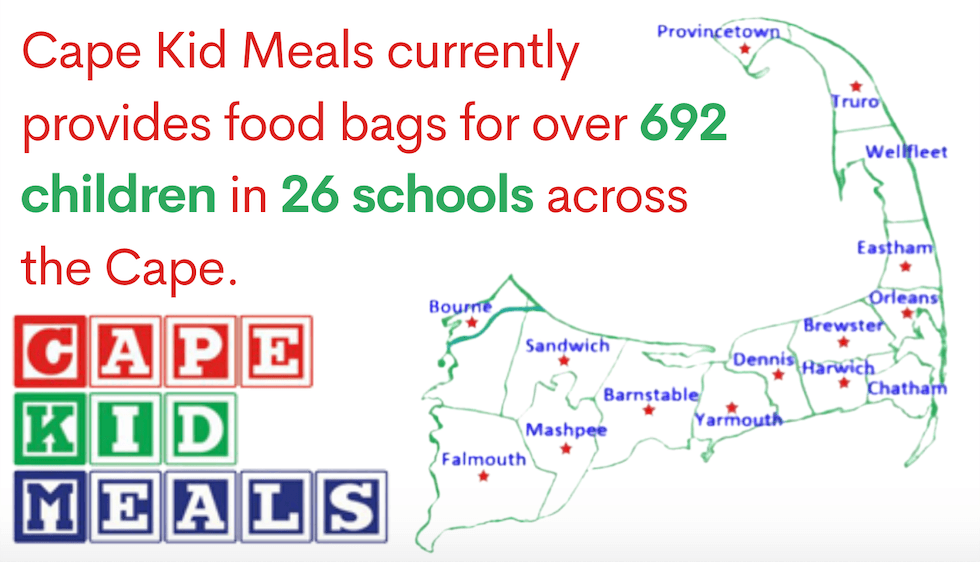









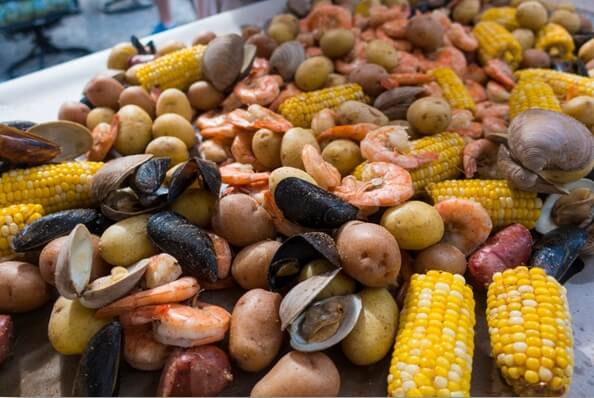

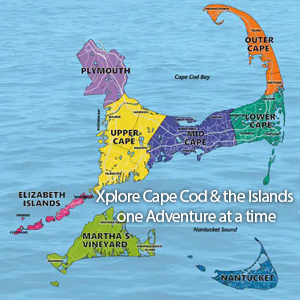
This Post Has One Comment
Pingback: Cape Cod Charities - Supporting Wide Range Causes